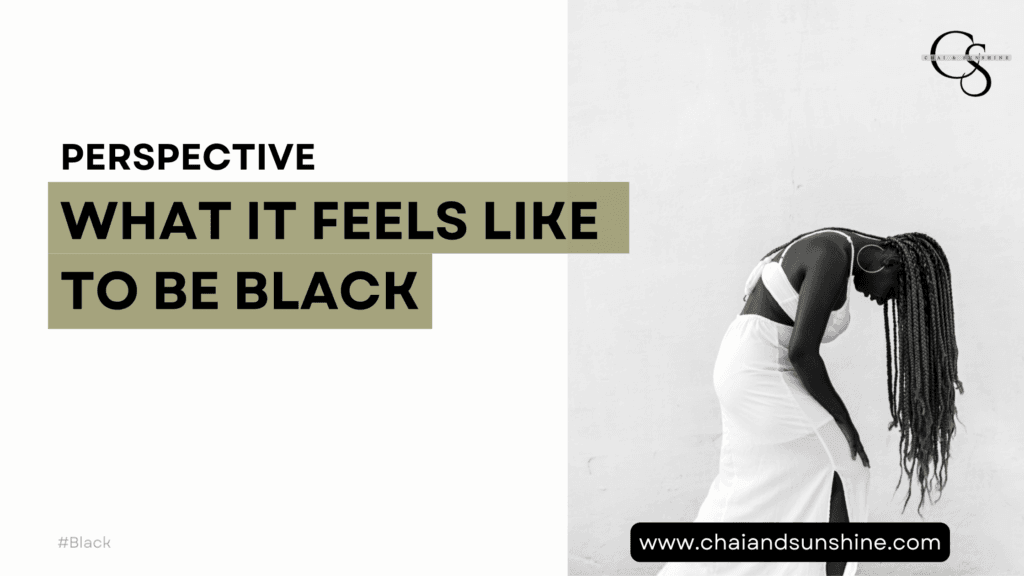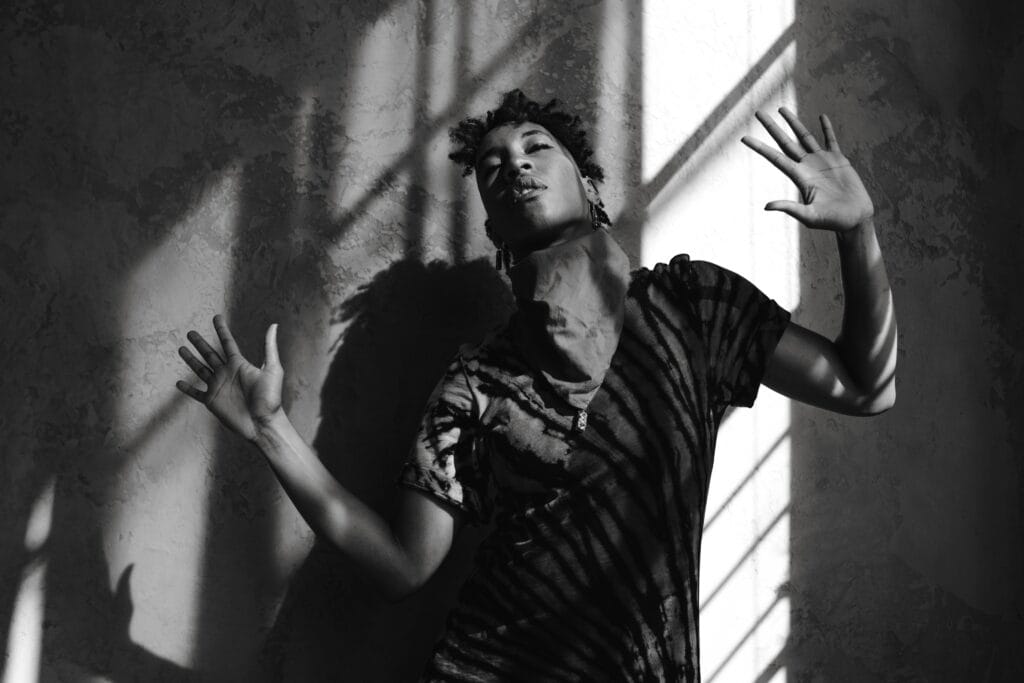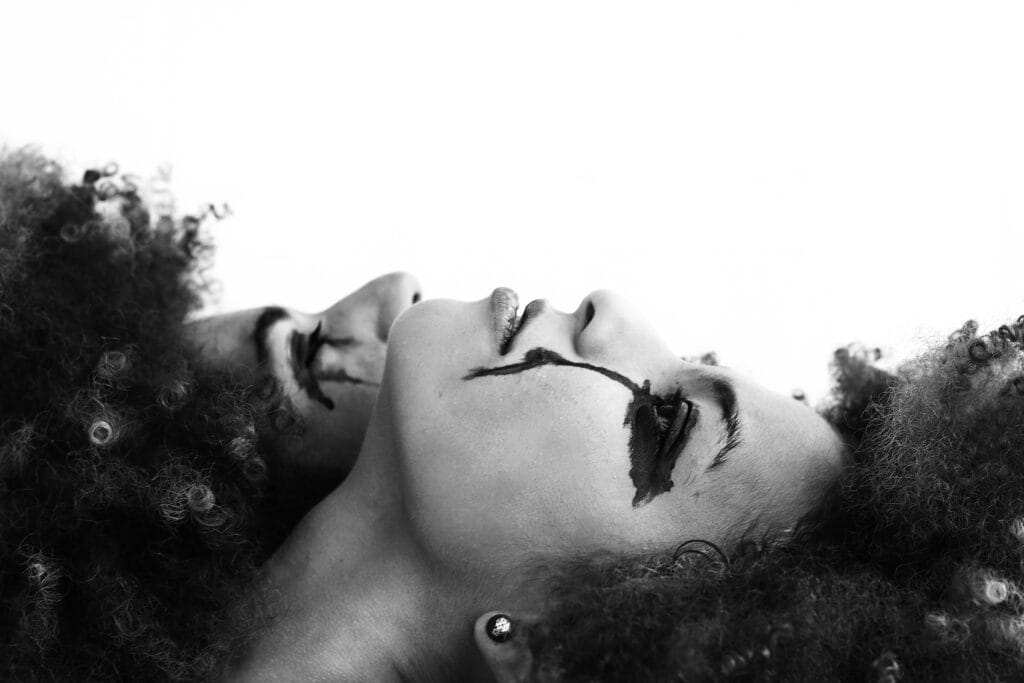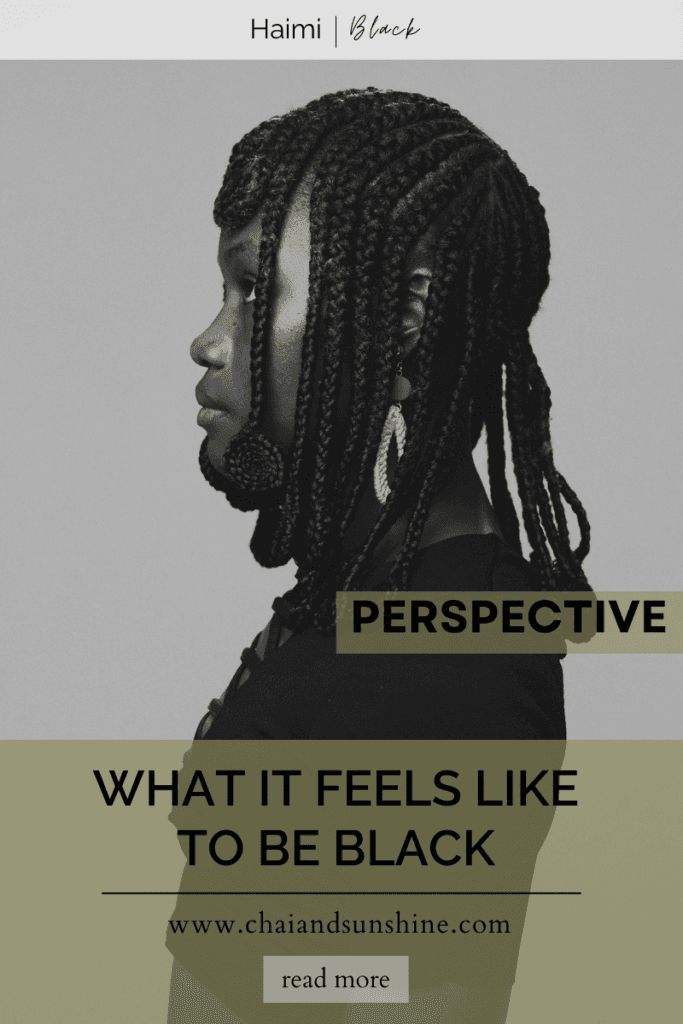What It Feels Like To Be Black

Have you ever wondered what it feels like to be black?
Well, it can be pretty “normal” (being code for “same as white”) for quite a chunk of the time. Racism isn’t always being thrown in your face.
But here’s the difference. You go through life with a heavy emotional lode that can be triggered by ‘mundane’ events.
For me, this baggage came into sharp focus one Friday — I call it Black Friday because I’m funny — when an ‘ordinary’ day unexpectedly turned into a repeated reminder of my place in the social hierarchy.
And no, this isn’t a post about me experiencing racism in Portugal. I haven’t. (Yet?). But it’s a reflection of what it feels like to be black and to go through life with certain sensitivities.
Up for a little snapshot of the lived black (African) experience (in Europe)? Read on 🙂
**Disclaimer: There is not one lived black experience common to everyone. Experiences also vary depending on individual circumstances. There are many black folk experiencing better and worth mental health outcomes related to their blackness in the world.
Table of Contents
ToggleBlack Friday: Bureaucracy, Government Officials, and a 3-Year-Olds Comment
Fellow Africans who have left Africa: how painful was your visa/ residency experience?
For me, it’s a personal paint point.
There is not one country that I have lived in that has not given me Kafkaesque bureaucratic trauma. Heck, even travelling can be a headache sometimes. Portugal, while being the best of my terrible experiences, was still not an exception.
I had to sort out some bureaucratic issues with my residence visa, which had been mailed to an old address because there was no way to contact authorities to update my address.
What does this have to do with racism?
Surprisingly – a lot!
The Dehumanisation of African Immigrants

Yeah, the Portuguese immigration process is backed up like city traffic. I applied for my residency in January and received it in November. But it’s like that for most people.
So, why did I take it personally?
Because every travel and emigration process has been fraught with hoops and proofs. Most times I wanted to go abroad and have a good time, I’ve had to prove everything about my existence.
(Most) white people just need their passports.
And in Portugal, when we changed address, I was the one penalised.
But, it didn’t stop there.
The woman at the post office that day was cold, dismissive, and impatient. She didn’t seem to care at all that I was trying to resolve an important matter. It was a big, unspoken “not my problem.”
Now, I’m not saying this woman was deliberately racist — after all, she wasn’t overtly hostile.
But the sharpness in her tone, the lack of empathy, and the way she barely looked at me all made me feel like an outsider. Like someone whose presence in the space was an inconvenience.
I’ve experienced this sort of behaviour before — the casual indifference that isn’t quite racist to be called out. But still feels like a brush-off because of your hierarchy in society.
The Little Girl at My Daughter’s Kindergarten
Later that day, I went to pick up my daughters from kindergarten.
A classmate (3 years old) pointed at me and said, “Tens uma cara preta” — “You have a black face” — in Portuguese.
“Huh?”
The comment wasn’t meant to be cruel, and the girl probably didn’t even understand the gravity of what she was saying. But still, it stung.
Because in a way, the child’s words felt like an innocent, unfiltered reflection of how some people see me in the world.
As I stood there, trying to gather my thoughts, I was faced with the reality that being black is something others can’t help but notice — sometimes without thinking, sometimes with full awareness.
But no matter how well-meaning or innocent the comment might have been, it had a sharpness to it that struck deep of what it means to be a black woman in a predominantly white space.
The Psychological Baggage of Blackness
At this point, I couldn’t help but reflect on my complex relationship with my blackness.
Growing up in South Africa, race was always on the table — not just in direct ways, but in the invisible rules that governed how we interacted.
And whether you grow up in a highly racialised society like South Africa or not, black people will know exactly what I’m talking about.

Growing up black
Growing up in South Africa, the simplest interactions could often be loaded with tension.
Whether it was the dismissive stares, the condescending attitudes, or the invisible walls that seemed to rise up around me in certain spaces, I learned early on that being black means constantly navigating microaggressions.
These subtle moments (which are tough to stand up against without looking unreasonable) accumulate over time.
And that’s the baggage we carry around as black people.
And on my particular black Friday, I felt the weight of it all.
What made that day so uniquely loaded for me wasn’t the action or words of the other people. It was the cumulative effect of a lifetime of experiences — from growing up in post-apartheid South Africa to navigating racial dynamics in Portugal.
How Small Moments Become Big Triggers

What might seem like a minor inconvenience — such as dealing with bureaucratic nonsense or hearing an innocent comment — can light a black person’s fuse.
Why?
Because it taps into the historical, social, and psychological context of being black.
The day’s events weren’t inherently racist. I don’t believe they were. But it alerted me to my heavy emotional baggage.
It’s the weight of history, of having to perform emotional labour in spaces where you are constantly scrutinised. Where you are gaslighted into feeling that you should operate and live with the same kind of ease that non-blacks experience in the world.
As a black African woman living in Portugal, I often find myself carrying a certain psychological load in everyday situations. Small encounters, like talking to other parents at my children’s school, can trigger a whole spectrum of emotions. Anxiety, insecurity, sadness, and sometimes frustration.
And I don’t mean to say that I frequently experience overt acts of racism. But that there are so many ways in which the world around us is structured to reinforce our “otherness.”
Even when there’s no overt malice from others, what it feels like to be black is carrying around a constant undercurrent of awareness, a hypervigilance. It’s living with a “difference” that others can see and often react to — whether they mean to or not.
We’re both trying to detect any hints of racism for our safety, and we’re trying to avoid all instances of racism for our safety.
Want to know what it feels like to be black?
In one word: TIRING!
The Emotional Toll of Navigating Blackness in White Spaces
My black Friday experience is part of the ongoing journey of healing from the mental and emotional scars of complex trauma. Particularly the trauma linked to being black in a society that often marginalises and stigmatises my identity.
It’s a subtle kind of pain, one that doesn’t always scream but lingers in the background, nudging me when I least expect it, threatening to take the reigns. It’s the quiet feeling in my gut of being out of place, not fully seen, or just completely misjudged.
And while I don’t believe I was directly subjected to racism that day, I can’t ignore how the dismissals made me feel.
In many ways, it helped me realise the extent of my baggage. And it felt like a reaffirmation of the emotional labour I’ve had to engage in throughout my life as a black woman.
It’s not just the specific actions of others that weigh on me. It’s the constant mental and emotional effort required to navigate spaces that were not designed for people like me.
These daily encounters — however small — accumulate over time, contributing to the complex psychological makeup I carry as a black woman in white spaces.

And Still I Rise: Black Resilience
The healing journey is long, and sometimes it’s the smallest things, like a snide comment or a dismissive glance, that make the weight of that journey feel particularly heavy.
Being black means that everyday life doesn’t always unfold the way it does for others.
Simple inconveniences — rude customer service, offhand comments — come with an emotional lode that is invisible to many but deeply real for those of us who live with it.
It’s not just about race; it’s about how race intersects with our identities, our histories, and our ongoing emotional work.
For me, the key to managing this weight is acknowledging it — accepting that the emotional baggage exists and finding ways to work through it. (Like therapy! So life-changing, y’all).
The journey of healing continues, and I am learning to face these moments with resilience, knowing that my experience is not just one of pain, but also of strength.
